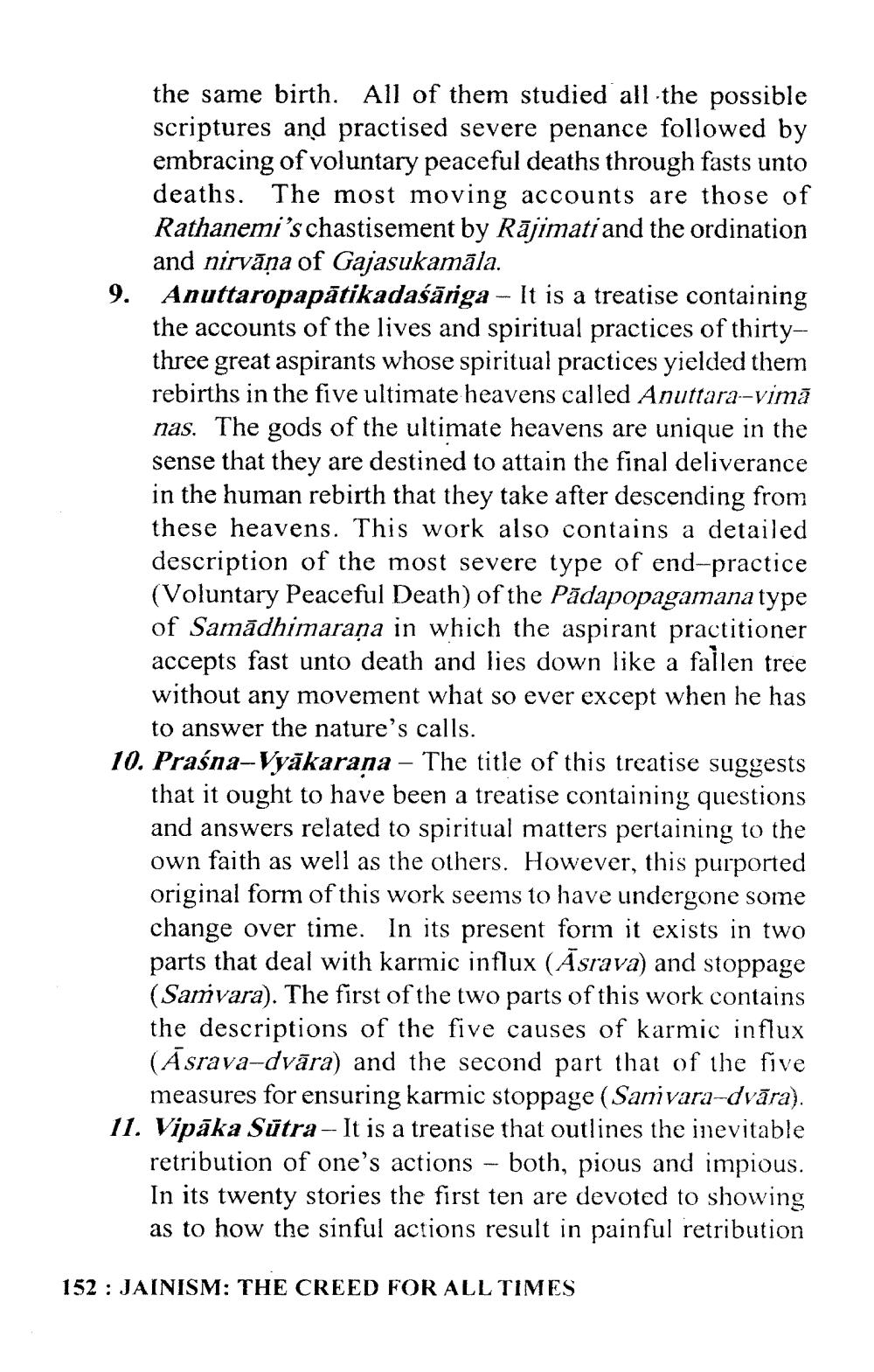________________
the same birth. All of them studied all the possible scriptures and practised severe penance followed by embracing of voluntary peaceful deaths through fasts unto deaths. The most moving accounts are those of Rathanemi's chastisement by Rājimati and the ordination and nirvāṇa of Gajasukamāla. Anuttaropapātikadaśārga - It is a treatise containing the accounts of the lives and spiritual practices of thirtythree great aspirants whose spiritual practices yielded them rebirths in the five ultimate heavens called Anuttara-vimā nas. The gods of the ultimate heavens are unique in the sense that they are destined to attain the final deliverance in the human rebirth that they take after descending from these heavens. This work also contains a detailed description of the most severe type of end-practice (Voluntary Peaceful Death) of the Pădapopagamana type of Samādhimaraṇa in which the aspirant practitioner accepts fast unto death and lies down like a fallen tree without any movement what so ever except when he has
to answer the nature's calls. 10. Praśna-Vyakarana – The title of this treatise suggests
that it ought to have been a treatise containing questions and answers related to spiritual matters pertaining to the own faith as well as the others. However, this purported original form of this work seems to have undergone some change over time. In its present form it exists in two parts that deal with karmic influx (Asrava) and stoppage (Samvara). The first of the two parts of this work contains the descriptions of the five causes of karmic influx (Asrava-dvāra) and the second part that of the five
measures for ensuring karmic stoppage (Sanivara-dvāra). 11. Vipāka Sūtra - It is a treatise that outlines the inevitable
retribution of one's actions – both, pious and impious. In its twenty stories the first ten are devoted to showing as to how the sinful actions result in painful retribution
152 : JAINISM: THE CREED FOR ALL TIMES




